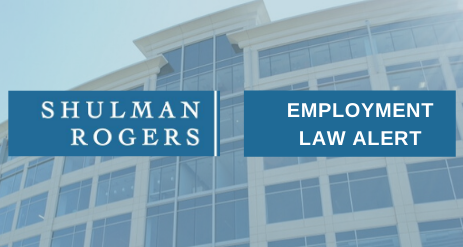The Federal Government joined several states in potentially voiding existing mandatory arbitration clauses in cases involving sexual harassment or assault. Arbitration has long been used as a preferred alternative to litigation for privacy and confidentiality purposes. However, since the Me Too Movement alleged the rampant abuse and public harm of forced arbitration and confidentiality agreements, arbitration remains under siege by both state and, now, the Federal Government seeking to remove this cloak of forced confidentiality.
After numerous states, including Maryland, took swift action to limit the use of confidentiality provisions by no longer allowing perpetrators of sexual harassment and assault and their employers to resolve claims in private proceedings and through confidential settlement agreements, Congress finally took similar action. The
Ending Forced Arbitration of Sexual Assault and Sexual Harassment Act of 2021 now affords an employee asserting sexual harassment and/or assault claims, who is subject to a pre-existing agreement mandating arbitration, the option of proceeding in court or through the more confidential arbitration process. In short, even if an employee previously agreed to arbitrate, or waived his/her right to bring claims in a joint/class action in the courts, he/she retains those options because of this Act. This Act is expected to be signed into law by President Biden shortly.
While Congress worked to end forced arbitration in certain circumstances, the Fourth Circuit, in
Warfield v. Icon Advisers, was highlighting the growing futility of challenging an arbitration decision. In particular, Warfield highlights the futility in asserting a “manifest disregard for the law” challenge when there exists any conceivable argument or opinion upon which an arbitrator or panel may rely. In Warfield, the court permitted an arbitrator to construe the existence of a “for cause” termination requirement merely because of the existence of an arbitration clause, notwithstanding North Carolina’s clear recognition of at-will employment.
Here, with opinions suggesting the presence of an arbitration clause implies the existence of “for cause” termination, and the divided reading of these opinions by the North Carolina courts, the arbitrator’s decision failed to reflect the alleged manifest disregard of the law and sustained a wrongful termination decision and the arbitrator’s substantial monetary award.
As the use and reliance upon arbitration, and its resulting confidentiality, continue to be threatened and curtailed, and questionable arbitration decisions and awards seem irreversible, it might be a good time to review and reconsider your current use of arbitration, or at least the agreements and provisions implementing arbitration. If we can help, please contact the Shulman Rogers attorney with whom you work or a Shulman Rogers Employment Lawyer to talk through these issues and assist you with these agreements!

